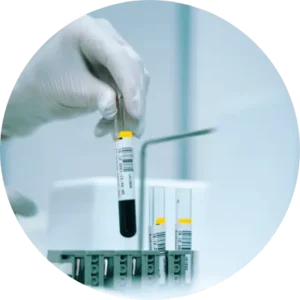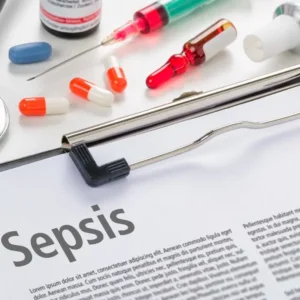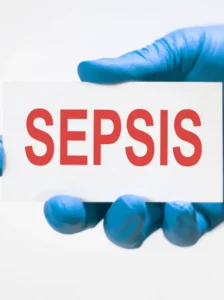If you suffered injuries or your loved one died because sepsis went undiagnosed, untreated, or was improperly treated, medical malpractice attorney Stephen Osborne can help ensure that the negligent medical providers are held accountable for the harm their actions or omissions caused you to endure. Advocating for victims of medical negligence since 1992, Stephen can help you win compensation to help pay for your medical bills, future medical treatments, lost wages and future earning capacity, pain and suffering, and more. Call now to begin working with a Reno sepsis lawyer.

Sepsis is a life-threatening medical condition that strikes when the body’s extreme response to infection triggers inflammation throughout the body. It occurs when chemicals are released into the bloodstream to combat the infection. Instead of attacking the microorganisms that are causing the infection, however, the body releases a cascade of attacks against cells, tissues, and organs.
Sepsis is a medical emergency. If the body begins losing its battle with the condition, severe sepsis may quickly develop into septic shock. If this occurs, the patient’s blood pressure will significantly drop, reducing blood flow to the brain and other vital organs. In response, the patient’s breathing rate will increase and his or her heart will beat faster. As toxins continue to invade the patient’s body, internal bleeding, organ failure, and eventually death may occur.
Failing to recognize the early symptoms of sepsis could result in the condition advancing to septic shock. Common symptoms that indicate that a patient may have sepsis include:
Patients who experience a combination of these symptoms should seek urgent medical care and let their medical provider know that they suspect sepsis. There is no single test to diagnose sepsis. If an infection is present and two or more of the following exist, a sepsis diagnosis may be made. Medical providers will look for:
When these signs are missed or are not checked for and sepsis occurs, a Reno attorney could help you pursue legal action.
Early diagnosis and treatment of sepsis and the infections that cause the condition can drastically improve a patient’s chances of survival. If a medical professional suspects sepsis, various tests can be performed to help confirm a diagnosis.

Doctors may perform a series of blood tests to check for indicators of sepsis and to help them evaluate how well the patient’s organs are functioning. The tests may reveal evidence of infection, blood clotting problems, abnormal organ function, electrolyte imbalances, and impaired oxygen availability. The tests often evaluate levels of:
The following blood tests can reveal blood clotting issues that may indicate sepsis.
Imaging tests can help your medical team locate infections in your body. If the site of infection cannot be found, your doctor may order:
Your doctor may also perform urine tests to learn more about your health if sepsis is suspected. These tests include:

Once a sepsis diagnosis is made, prompt treatment is vital to avoid permanent organ or tissue damage or fatality. According to a 2006 study, the risk of sepsis-related death increases by approximately 7.6% with every hour that passes before treatment of the condition begins. Treatment may include:
Although sepsis and septic shock can be prevented, and existing treatments can help save patients’ lives, injuries and wrongful deaths caused by the condition continue to occur. The Centers for Disease Control and Prevention (CDC) reports that in an average year:
Untreated or improperly-treated infections can cause sepsis. Although most cases of sepsis are caused by bacterial infections, the condition can also be caused by other types of infections, including viral infections like influenza, pneumonia, and COVID-19. Even minor fungal or parasitic infections can put you at risk of developing sepsis. Sepsis attorneys often see cases that have developed from:

If your doctor failed to prevent, diagnose, or treat sepsis, or an infection that led to your development of the condition, and you sustained damages as a result, you may have a medical malpractice claim.
Examples of medical negligence that may be related to the development of sepsis or septic shock include:
If you or a loved one developed sepsis while in a hospital or under the care of a medical professional, Reno sepsis attorney Stephen Osborne can examine your medical records and other evidence to evaluate whether medical malpractice likely contributed to the deterioration of your health.
Nursing home residents and people who are living in assisted living facilities are at an exceptionally high risk of developing sepsis due to immobility, age, comorbidities, and weakened immune systems. Despite infection control measures and established protocols that are designed to prevent and treat conditions that lead to sepsis, thousands of nursing home residents develop the condition every year. Between 30% and 40% of nursing home residents who contract sepsis will not survive.
Examples of nursing home negligence that may lead to sepsis include:
When negligent nursing homes fail to prevent or treat infections that lead to sepsis or septic shock, they can be held liable for the serious illnesses and deaths that result. Reno Sepsis attorney Stephen Osborne can help you file a lawsuit to recover compensation for economic and non-economic losses.
Anyone with an infection is at risk of developing sepsis. Some people are at an increased risk, however. According to the CDC,
people who are more likely to contract sepsis include:
If you or your loved one developed sepsis while you were in the hospital, under the care of a medical professional, or living in a nursing home, various parties may be able to be held liable for sepsis injuries and deaths with the help of a Reno attorney. This includes, but is not limited to:
If you were in the hospital, or receiving care at a surgical center, birthing center, or medical clinic, and you developed sepsis, that facility can be held liable if conditions at the facility contributed to the infection that led to sepsis. The facility may also be able to be held liable for your injuries if staff members failed to diagnose and/or treat your infection or sepsis in a timely manner.
In many cases, physicians, nurses, anesthesiologists, and other medical professionals are not employed by the facilities where they work. If a medical professional failed to diagnose or prevent the condition, or his or her negligent acts or omissions contributed to the worsening of sepsis while he or she was working as an independent contractor, that party can be legally responsible for damages.
If you or your loved one lived in a nursing home or assisted living facility when you contracted sepsis or an infection that led to sepsis, the facility may be responsible if negligence was a contributing factor. If unclean facilities, untreated bedsores, or a poorly maintained catheter, breathing tube, or IV contributed to the condition’s development or worsening, the nursing home can be held liable.
Contracting agencies may be able to be held liable for sepsis injuries if their workers were negligent in providing services and an infection that led to sepsis developed or worsened as a result. For example, if a cleaning company failed to properly clean and sanitize your hospital room, and you developed an infection that led to sepsis, the company may be held liable.
If a medical professional, healthcare facility, nursing home, device manufacturer, or contracting company played a role in failing to prevent, diagnose, or treat an infection that led to sepsis or the condition itself, you may be able to file an injury claim or lawsuit to recover compensation for your losses. Your Reno sepsis attorney will help you determine which parties played a role in causing your injuries, and what type of claim or lawsuit you should file.
If your Reno sepsis lawyer determines that you should file a medical malpractice claim for sepsis injuries, he will need to demonstrate that:
Reach out to our firm today for the caring guidance you need.